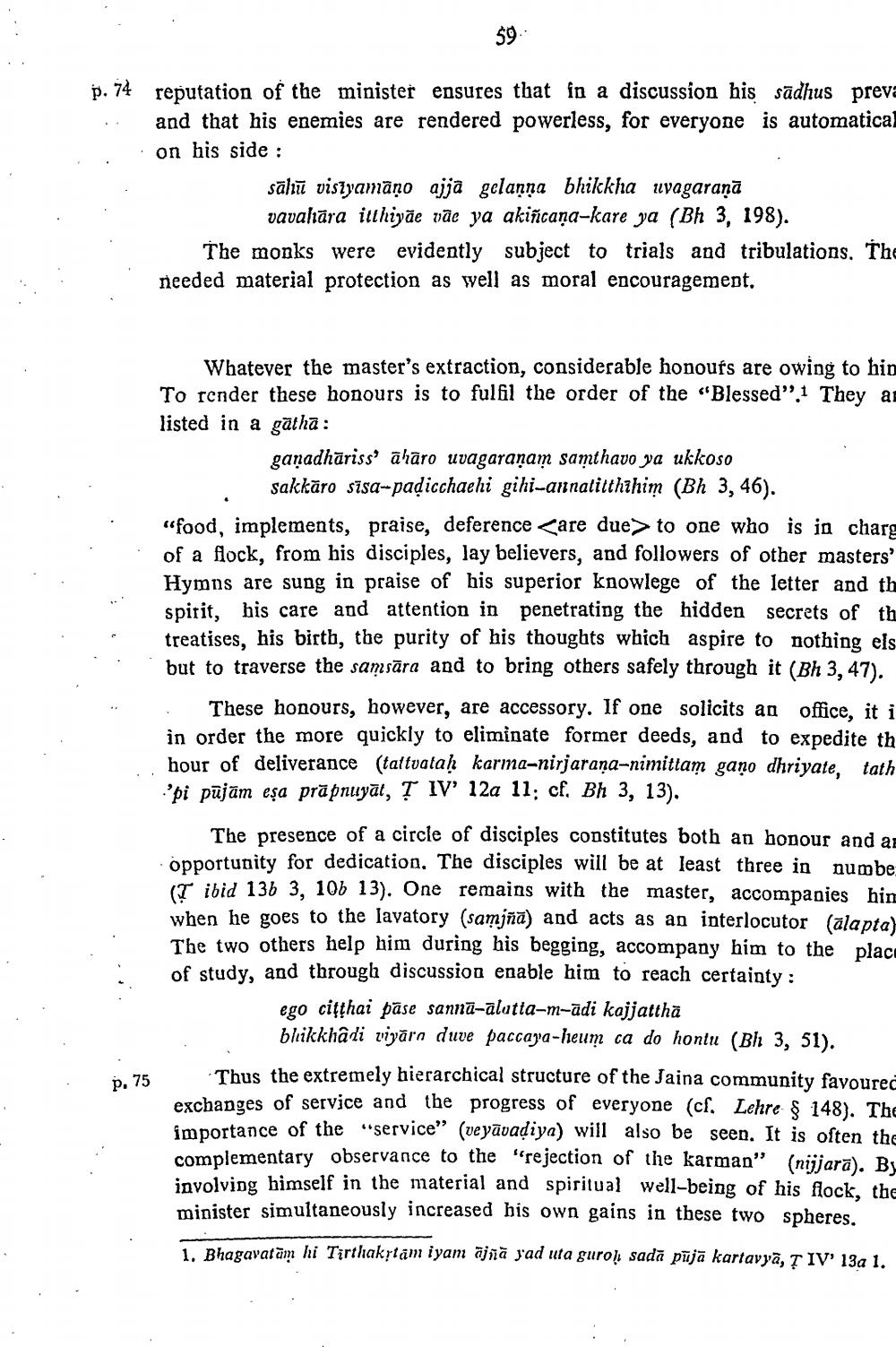________________
59.
p. 74 reputation of the minister ensures that in a discussion his sādhus preva
... and that his enemies are rendered powerless, for everyone is automatical .. . on his side :
sālsū visiyamāṇo ajja gelanna bhikkha ragaranā
vavahāra ilthiyae vãe ya akiñcaņa-kare ya (Bh 3, 198). The monks were evidently subject to trials and tribulations. The needed material protection as well as moral encouragement,
Whatever the master's extraction, considerable honours are owing to hin To render these honours is to fulfil the order of the “Blessed".1 T listed in a gătha:
ganadhāriss' āhāro uvagaranam samthavo ya ukkoso sakkāro sīsa-padicchaehi gihi-annatitthihim (Bh 3, 46).
"food, implements, praise, deference <are due> to one who is in charg of a flock, from his disciples, lay believers, and followers of other masters' Hymns are sung in praise of his superior knowlege of the letter and th spirit, his care and attention in penetrating the hidden secrets of th treatises, his birth, the purity of his thoughts which aspire to nothing els but to traverse the samsāra and to bring others safely through it (BH 3,47).
These honours, however, are accessory. If one solicits an office, it i in order the more quickly to eliminate former deeds, and to expedite th hour of deliverance (taltvataḥ karma-nirjarana-nimittam gano dhriyate, tath 'pi pūjām eșa prāpnuyāt, Ţ IV' 12a 11: cf. Bh 3, 13).
The presence of a circle of disciples constitutes both an honour and a opportunity for dedication. The disciples will be at least three in numbe
7 ibid 13b 3, 105 13). One remains with the master, accompanies hin when he goes to the lavatory (samjñā) and acts as an interlocutor (alaptal The two others help him during his begging, accompany him to the place of study, and through discussion enable him to reach certainty :
ego citthai pāse sannā-alatia-m-ūdi kajjatthā
blikkhâdi viyārn duve paccaya-heum ca do hontu (Bh 3, 51). Thus the extremely hierarchical structure of the Jaina community favoured eschanges of service and the progress of everyone (cf. Lehre $ 148). The importance of the "service" (veyāvadiya) will also be seen. It is often the complementary observance to the "rejection of the karman" (nijjarā). By involving himself in the material and spiritual well-being of his flock, the minister simultaneously increased his own gains in these two spheres.
p. 75
1. Bhagavatām hi Tirthakrtam iyam ajñā yad uta guroh sadā puja kartavya, T IV' 13a 1.




